|
Growing up in the 90’s meant a lot of time with family movie nights, being ridiculously goofy before social media was a thing, and quoting some classic cartoons. There is one that stands out: Peanuts. Some of the characters include Charlie Brown, Sally, Linus, Lucy, and, of course, there is Schroeder. Although those are some of my favorites, the cast was big and the movies and episodes covered a variety of topics and seasonal fun for all. We’d sometimes quote various parts (as one does) in our regular conversations, like when Charlie Brown says, “Good Grief” anytime he is dismayed, or when Sally asks for gifts for Christmas, “Just send money, how about 10s and 20s?” The music, written by Vincent Anthony Guaraldi, is catchy and helps tell a story, plus the character that plays the piano, Schroeder, provides the friends a chance to dance to the theme song. My brother learned that song when we were kids and he played it every single chance he had - just like his favorite character Schroeder. You see, Jon Kirby was the type of musical genius that, once he learned to play piano, could hear a song and teach himself to play it. He read music, saw music, and felt music, and Peanuts songs were some of his favorites to play. Later, when he began writing music of his own, he penned something so whimsical, that it required 21 hands to play it. Every pianist who had the honor of playing it told him how fun it was to play something so silly yet jazzy, and I am certain that was some homage to Guaraldi. Tragically, my brother passed away in November of 2023 from an unexpected heart condition, and I have been grieving his loss every day since then. I am coming to terms with accepting it more as time goes on and I am seeking help for healing, but it has been hard and sad and terrible to endure. Someone full of so much life to live, suddenly gone and taken.
Grief is a weird thing, it makes people act differently and no one quite knows how to do it “right.” Am I grieving enough? Is my grieving showy? Should I take time to spend on how I am feeling or do I keep pushing through? Do I talk about it or not talk about it? How can praying help and if it helps, how will I know? What is up and what is down, and why do people care about ridiculous things when my loved one is gone? These are all thoughts and feelings one might have, and when you peel away all these questions, it reveals the sad human who has been met with an atrocious reality. There has been a tragic loss and we are sad, angry, anxious, scared, heartbroken, and scarred from it. Our mind tries to make sense of it, but we cannot. Our hearts seek answers and we are often left without any. Our bodies are here while our focus is stuck on this tragic loss and it is hard to turn our fixated selves to other things. For me in this time of grief, I have been letting myself cry whenever I need to. I have been reaching out to family and friends to talk and share stories, but where do I go from here? A friend of mine Sarah Frances, who has had her share of grief in the past decade, lost both of her parents and still maintains a life of joy and fun and work and remembering. She is inspiring. I asked what advice she had for me and I thought her words were profound: “When you lose someone it is never the right time. But one of the greatest connections that we have to every single person is that we all go through this at some point and [someone] knows almost exactly what you are feeling.” She went on to say, “It does not matter if you lose someone you love, hate, tolerate, are related to…loss hurts, but you are not alone.” You are not alone. She is right that I am not alone, even if the pain feels like no one else could understand. Some people understand. I have been surrounded by so many loved ones and friends and acquaintances who have checked in and offered support. I have heard from people who I have never met, but who knew Jon. It’s been humbling and lovely, but painful and heartbreaking too. The community that has surrounded not just me, but my dad and my sisters, and his wife and her family, is just so full of love and I cry thinking about how grateful I am for all of it. The love from others is what got me through some days, like my husband who lets me just sob some nights and I know he will always hear me out when I am having a hard time with it, comforting me with a warm embrace. Even my little 4 year old has now experienced grief, and keeps me moving forward while remembering happy times. It is all hard, but it is good to have a village to go through it with. Isaiah 41:10 says, “So do not fear, for I am with you; do not be dismayed, for I am your God. I will strengthen you and help you; I will uphold you with my righteous right hand.” This connects it all for me. I have felt Christ in so many people. I feel strengthened in knowing that I am not alone in not only my grief, but my grieving journey, my faith journey, and the people walking alongside me in life. I am seeking God and finding God in the people and the kindness, and to me, this feels like “good grief” if that could be a thing. Life is hard. We can do it. Good grief!
1 Comment
 Cascia, the city of St. Rita, whose feast day is today, is a beautiful mountainous place in the region of Umbria in Italy. Its natural beauty obscures a violent past, which St. Rita experienced in her own life through the violent deaths of her husband and sons. Violence continues in our world in many different ways. One way is the violence that is done through lack of care of our common home, all of creation, including human beings. Pope Francis tells us in Laudato Si’: “Sin is manifest in all its destructive power in wars, the various forms of violence and abuse, the abandonment of the most vulnerable, and attacks on nature” (66). St. Rita forgave those who killed her husband and sons. She worked for reconciliation. Today, in Cascia and shrines in honor of her throughout the world, the work of reconciliation is a hallmark. We need to ask ourselves how we are reconciling the sins that Pope Francis identifies. The Pope reminds us that “everything is related, and we human beings are united as brothers and sisters on a wonderful pilgrimage, woven together by the love God has for each of his creatures and which also unites us in fond affection with brother sun, sister moon, brother river and mother earth” (Laudato Si’, 92). May the charity of Christ urge us on! In God, the Infinite Love, Fr. Frank
“This [the Feast of Pentecost] was to show that just as God in creating man had, as Holy Scripture expresses it, breathed into him the breath of life, so too in communicating a new life to his disciples to live only by grace, he breathed into them his divine Spirit to give them some share in his own divine life. The Spirit of God also ought to come and to rest upon you on this sacred day, to make it possible for you to live and to act only by the Spirit’s action in you. Draw him within you by offering him a well-disposed heart.” — St. John Baptist De LaSalle, Meditation 43.1 Every year at Pentecost, the Church celebrates its birthday, and this year — assuming Christ died in 33 A.D. — the Church will be celebrating its 1,991st birthday. That is 1,991 years of preaching, teaching, and pastoral care for the many and diverse people of God. Each day, I work with ninth and tenth graders in a Catholic high school, teaching them about Sacred Scripture and the Catholic Church. While teaching my sophomores about Church History, I continually receive similar questions: “How did the Church care for its people?” “Why did the Church do that when it seems so wrong by today’s standards?” These questions got me thinking about the Church’s choices in caring for the people of God across history and led me to teach Church history by contextualizing Pastoral Decisions within the historical context of the time period. This led my students to a deeper understanding of the ancient, medieval, and modern ages of the Church. I began this blog post with a quote from St. John Baptist de LaSalle on the gifts of the Holy Spirit given to the Apostles at Pentecost because the same Spirit and gifts have guided the Church since that day. In the early Church, the Holy Spirit guided the Apostles to go out from Jerusalem and preach to the people where they were already living their daily lives. Acts of the Apostles discusses Peter and other Apostles preaching in the Temple in Jerusalem, entering the homes of Gentiles, and traveling to cities across the Roman Empire to speak in public spaces. These first missions sought to bring Jesus’s Gospel message to people in their own cultural context, made possible by the Holy Spirit’s gift of being able to speak various languages from Pentecost. The early Church focused its sacramental life on the “breaking of the bread” or Mass, most likely occurring in people’s homes and dining areas in their preferred language, as seen in the Road to Emmaus story. These personal invitations to the Faith yielded great results and the founding of Christian communities across the Roman Empire. These localized communities, however, soon began to consolidate with new pastoral goals and programs in the aftermath of Constantine’s Edict of Milan which legalized Christian worship, and the subsequent shift of Roman religion from paganism to Catholicism. With Catholicism becoming the state religion of the Roman Empire, the Church gradually became a more established institution. Part of this was the adoption of the use of Latin in public liturgy. Since Catholics could now worship in newly founded Basilicas and Churches, a common liturgical language was needed to cater to all members of Roman society. Additionally, when the Western Roman Empire fell in 476 A.D., effectively breaking up the empire into states ruled by different ethnic groups across Europe, the Church stepped in as a stabilizing institution to help govern and rule a fractured continent. The necessities of common liturgical practices and a united Faith leadership led the Church to influence secular medieval and Renaissance rulers. Many in society today — including my students — look at this era of the Church as the height of Catholic control and corruption, and there were several corrupt leaders within the Church. Nevertheless, when shown as a unifying agent of society — with positive and influential leaders like St. Francis of Assisi, St. Dominic Guzman, and St. Thomas Aquinas — the Church’s evangelization and catechesis efforts come to the forefront. Even today, the Church references the documents and principles of medieval and Renaissance theologians to explain how the Church continues to live its authentic witness to the Gospel in the modern age. The Church of the modern age has naturally progressed from its ancient, medieval, and Renaissance roots. The Holy Spirit continues to guide Pope Francis, the Bishops, and lay leadership across the Church to pastorally respond to the modern needs of the Body of Christ. One of the most notable moments of a pastoral shift in the modern era was the Second Vatican Council, allowing greater expression of cultural diversity in the Church, Liturgy, and personal spirituality. Each Pope since Vatican II has continued to further explain and open the documents of the council for consideration and application among the faithful. In 2019, in his Post-Synodal Apostolic Exhortation to Young People in the Church, Pope Francis challenges the reader to “above all, in one way or another, fight for the common good, serve the poor, be protagonists of the revolution of charity and service, capable of resisting the pathologies of consumerism and superficial individualism” (Christus Vivit, No. 174). While addressed to young people to be agents of change in society, this is one of many challenges of Pope Francis that beg the faithful to continue witnessing to the Truth of the Gospel and Jesus’s Mission in their own life. Similar messages have been given throughout the long history of the Church, with the only difference being in language and historical context. The singular unifying agent of the Church’s Pastoral Care throughout history has been the Holy Spirit. Today, we must continue to ask the Holy Spirit for help and inspiration in our daily life to help us go forward with the love of Christ to be positive witnesses of the Church today. **This image is from: https://www.psephizo.com/biblical-studies/the-movements-of-pentecost/**
 We are in the time of the Upper Room, the Cenacle. The days between the Ascension of the Lord and Pentecost are liturgically the time when the Blessed Virgin Mary, the Apostles, and the disciples were together in prayer, awaiting the coming of the Holy Spirit. They did not really know what to expect. In fire and wind, the Holy Spirit came, and their lives were transformed forever. The world is also transformed and is transforming. The mission continues in the name of Jesus Christ! We are sent as apostles, as missionary disciples, out into the world. Hiding in a room, in our homes, even in a church is not our call. Instead, we go forth, going where the Holy Spirit moves us to go. We can do amazing things in the name of Jesus Christ. There is no need to wait until someone invites us. No, if we are baptized, and especially if we are confirmed, then we can go forth! We need to recognize, though, that we do not send ourselves. We are sent by Christ, in and through his Church. The community of faith that we call Church is where we go forth from and to which we return. The Church teaches us, forms us, heals and nourishes us through the Sacraments, and sends us on mission. The mission is not ours; it is Christ’s. We, as members of Christ’s Faithful, are called to live his mission until he comes again, just as the Apostles were told to do. In all of this, Mary, Queen of Apostles, is with us as our Mother and Queen. Her feast day is the day before Pentecost. She was the perfect disciple of Christ. St. Vincent Pallotti said of her: “We have most holy Mary, after Jesus Christ, the most perfect model of true apostolic zeal, and of perfect love” (OOCC I, 7). The Decree on the Apostolate of the Laity of the Second Vatican Council echoes this sentiment of Pallotti: “The perfect example of this type of spiritual and apostolic life is the most Blessed Virgin Mary, Queen of Apostles, who while leading the life common to all here on earth, one filled with family concerns and labors, was always intimately united with her Son and in an entirely unique way cooperated in the work of the Savior… All should devoutly venerate her and commend their life and apostolate to her maternal care” (4). Mary, Queen of Apostles, pray for us! May the charity of Christ urge us on! To learn more about Mary, Queen of Apostles, please click here. **This blog was originally published on May 19, 2021.**
“Why are you standing there?” The angels who spoke these words to the astounded disciples now turn to ask us this question today. Perhaps, like the disciples after the Ascension, we too have been stuck looking up at the sky, wondering where Christ is. Our answers to the angels’ question are probably very legitimate. “I am standing here because I lost my job, because of isolation, because of sickness, because of racial and social discord, because of people’s differences, because I don’t know what else to do.” In this passage from today’s Gospel reading, which is the same as this upcoming Sunday’s, I remind myself that at least the disciples were looking up. They at least had their eyes fixed on Christ. That, in and of itself, is a good thing. But what God wants to convey through the angels after Jesus’ Ascension is that just seeing Christ or believing in him is not enough. A relationship with Christ results not in paralysis, but in action. “You will be my witnesses,” Jesus tells his disciples moments before he ascends to the Father. And it is by living out our relationship with Christ as witnesses that the world comes to know him and that our faith comes alive. Witnessing to our faith and accompanying others on their faith journeys shake us out of our paralysis and help us overcome our fear. Jesus is not conveying that hardship, suffering, or unrest will be absent from our lives, but that these no longer have the power to paralyze and trap us. His Resurrection has changed the narrative. And as the Easter season comes to a close, Jesus is calling us not only to believe in him, but to act— to have our lives transformed by the knowledge of the Resurrection and to live boldly and faithfully as a result. At this point, however, the disciples are still focused on earthly things. Just before Jesus’ Ascension, they ask him, “Lord, are you at this time going to restore the kingdom to Israel?” Many of us have similar questions. “Lord, at this time will I get my job promotion? As this time, will my addiction be healed? At this time, will our family be reconciled?” These are valid, important questions of the human heart. Questions that long for answers, for resolutions, for miracles. Jesus’ response seems mystifying and even unrelated: “You will receive power when the Holy Spirit comes upon you, and you will be my witnesses.” While the disciples are still caught focusing on the restoration of Israel and victory over their oppressors, Christ promises more. So much more, in fact, that they are unable to grasp it without the gift of the Holy Spirit, whose coming we celebrate on the Feast of Pentecost on May 23rd. It is why Jesus chose to ascend at this time. He had spent 40 days teaching and opening the Scriptures to his disciples after his Resurrection, but they still could only fathom human goals and objectives. Jesus knows his ministry has come to an end and that a new chapter of the Church will begin with the promised Advocate, the Holy Spirit. After he answers them, Jesus compels his disciples to look up to the heavens as he begins to ascend to the Father. He is physically showing them the needed disposition of their hearts and minds in order to receive the Holy Spirit: they should be considering heavenly things and a heavenly goal. But then, moments later, they are startled to hear: “Why are you standing there looking at the sky?” It can be tempting at times to separate ourselves from the reality of the here and now by over-spiritualizing things or being preoccupied with the past or future. The disciples are left looking up (very understandably), but this looking up and clinging to Jesus in his physical form distracts them from the action to which he has called and chosen them: to be his witnesses to the ends of the earth. This balance between living in the world but not of it can be difficult to grasp and practice. It’s important first to consider where you find yourself today. Are you asking the Lord to restore the kingdom to Israel? Are you standing looking at the sky? Many of us are somewhere in between. Below are 6 practices that help ground me in Christ and deepen my ability to witness to his love:
By considering these practices, it is my hope that, renewed by the Holy Spirit at Pentecost, we will enter into Ordinary Time ready to be Christ’s witnesses to the ends of the earth. Christ calls us each to so much more than simply remain standing. For more resources on living as missionary disciples, please click here. **This blog is a repost from May 13, 2021.** **This image is from: https://young-catholics.com/3256/the-feast-of-the-ascension-year-b/** Courage and perseverance are two traits that I admire. The latter is a characteristic that not many people have, is hard to teach, and one that is imperative for success. In my classroom of 2nd graders, I try to remind them to “not give up, but try again and again.” When they become frustrated with challenging work or difficult friendships, they stop wanting to try again. They start to give up - but I tell them, “Keep trying!” and “Don’t be afraid to make a mistake!” Hopefully, one day my students will grow to recognize how courage can help them persevere through anything.
People who do extraordinary things should be recognized for their courage and conviction. Saint Catherine of Siena, whose feast day we celebrated yesterday, is a woman whose contributions to the Church, taking action in times of need and exceptional theological writings, sometimes can be overlooked. Born in Siena, Italy in 1347, Catherine spent her life doing the will of God. She began receiving visions and praying to God from a very early age, even seeing in one in which Christ reassured her with an armor of courage that could overcome anything that tempted or threatened her. St. Catherine lived her entire life in prayer and was named a Doctor of the Church by Pope Paul VI on October 4, 1970. She along with St. Teresa of Avila and St. Therese of Lisieux are the three women to have been bestowed with such a title. St. Catherine worked to return Pope Gregory XI to Rome, from Avignon France where the Papacy had been residing for 67 years. Her determination to see this mission through was a testament to her unwavering courage to do God’s will. In her many philosophical letters, prayers, and the Dialogue, St. Catherine reflected on four theological concepts with which she considered while in ecclesiastical mysticism. The first was a Treatise of Divine Providence, the second was a Treatise of Discretion, third was a Treatise of Prayer, and finally a Treatise of Obedience. Throughout her courageous writings, she discusses the goodness of a person’s knowledge of God and his unending love for his children living on earth. Because of this prayerful life she led, in 1375, St. Catherine was blessed with the Stigmata on her hands, feet, and side. Her wounds reflected those of Christ’s and were only visible to the naked eye upon her death in 1380 at the young age of thirty-three. Found incorrupt in 1430, St. Catherine is now buried under the altar of Santa Maria Sopra Minerva, in Rome and a sculpture of her body is on display there, too. Throughout the year, let us strive to be like St. Catherine of Siena and take courage and persevere. Unshaken by those who challenged and doubted her, she remained steadfast in her commitment to Christ, His Church, and His people. You don’t have to be a saint to follow God’s call to courageous witness, but prayer and perseverance can lead you toward holiness in Christ. **This blog was originally published on April 30, 2015.** **This photo is from: https://ourcatholicradio.org/blog/5-things-you-can-learn-st-catherine-siena** Lately, it has been a personal goal of mine to be outside more often. With spring upon us in the Washington, D.C. area, there have been many new and bright, shiny opportunities to enjoy the weather. My four-year-old is often my outdoor buddy, and we have enjoyed finding new parks, revisiting old ones, and looking for exciting ways to explore. We have had so many laughs and special moments while enjoying our little piece of the world that I sometimes get emotional thinking about how blessed I am and how wondrous the world is. It is humbling to consider how massive and stunning, yet how perfectly planned our Earth was made to be. In celebration of Earth Day on April 22nd, I have decided to focus on the beauty of nature through the adoring eyes of my son and reflect on how to instill more wonder and awe into my everyday “grown-up” life.
Who among us is yearning for connection? Just about everyone! As humans, we are built and intended to need other people, it is how God intended for us to be: communal people. The solar eclipse on April 8th brought so many of us in North America together, outside, to view a celestial event take place that has not happened in totality in a long time. The awe that took place, from people of all walks of life, backgrounds, beliefs, and cultures to view something so wondrous is humbling. The feeling of being part of something so much bigger than oneself is truly a holy experience for some; for others it was a chance to participate with those around them - a true shared experience. In Pope Francis’ 2015 encyclical letter, Laudato Si: Care for Our Common Home, he cautions us about the dangers of not caring for the Earth, reminds us that we are all interconnected, and provides steps to take in order to be a productive and intentional steward of the Earth we share. There are so many practical ways to care for the world around us, that even young children are often taught about recycling, waste, planting new growth, sustainable choices, and conservation of resources - all in an effort to better our common home. Whether it is my class of preschoolers or my own son, every day serves as a chance to teach and encourage our upcoming generations to do their part as members of our planet. As I close here, a prayer from Salt and Light titled, A Prayer for Our Environment from Pope Francis' Laudato Si', seems like a perfect synopsis of my reflection here on the wonder and awe of our Earth we share: All-powerful God, you are present in the whole universe and in the smallest of your creatures. You embrace with your tenderness all that exists. Pour out upon us the power of your love, that we may protect life and beauty. Fill us with peace, that we may live as brothers and sisters, harming no one. O God of the poor, help us to rescue the abandoned and forgotten of this earth, so precious in your eyes. Bring healing to our lives, that we may protect the world and not prey on it, that we may sow beauty, not pollution and destruction. Touch the hearts of those who look only for gain at the expense of the poor and the earth. Teach us to discover the worth of each thing, to be filled with awe and contemplation, to recognize that we are profoundly united with every creature as we journey towards your infinite light. We thank you for being with us each day. Encourage us, we pray, in our struggle for justice, love and peace. Amen. 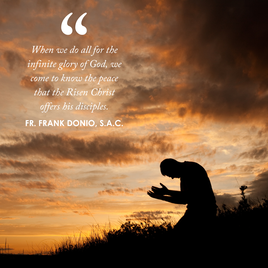 “For the infinite glory of God.” St. Vincent Pallotti pondered greatly about God as infinite love and that all that we as human beings should do all for the infinite glory of God. He would even put the initials AIDG at the top of his letters to others. Of course, his use of this term is an expansion of “for the greater glory of God” of St. Ignatius of Loyola whose spirituality influenced Pallotti. Due to being in Rome, Pallotti had access and involvement with many Catholic spiritual traditions and borrowed freely from them, often modifying aspects of them. Pallotti was clear that all that he did was for the infinite glory of God, not his own glory. He had numerous opportunities to have glory of his own, but he set them aside to focus on God and show the infinite love of God to others. It is well worth our asking the question of ourselves, whose glory do we seek? Is it our own, or that of another human being, or of God? When we do all for the infinite glory of God, we come to know the peace that the Risen Christ offers his disciples. When we go forth as his apostles, as St. Vincent Pallotti called all the faithful to be, we are called to do so for God alone. As we celebrate the 229th anniversary of the birth of St. Vincent Pallotti on April 21st, may the charity of Christ urge us on to do all that we do for the infinite glory of God. In God, the Infinite Love, Fr. Frank I think there is something special about a cover—about taking a song, a painting, or a movie and recreating it within the modern frame of mind. Aretha Franklin’s bold and unapologetic “Respect” is a perfect example, as she interprets the song as a Black woman in the 1960’s. As is Jimi Hendrix’s “All Along the Watchtower,” in which he narrates the song with hauntingly beautiful guitar riffs. In visual art, Andy Warhol recreates the portrait of Mao Zedong with a messy array of bright colors—an unusual depiction of the dictator. Finally, modern movies, headlined by the Cohen Brothers’ True Grit, give life to old characters and stories, recreating them for new audiences. However, even the Beatles, the most covered band of all time, cannot compete with the millions of interpretations of Jesus Christ. Thousands of artists have painted Christ crucified or the Madonna and Child. Everyone from Van Gogh, Basquiat, or da Vinci have painted Jesus Christ, each in their own manner. It can be mind-numbing to try to flip through them all, viewing each painting, alien to the others, and, oftentimes, to us. There are always two questions to ask when discussing art: “What is this artist trying to say?” and “What do we think he or she is trying to say?” These questions matter much more when investigating faith. In a special way, how artists of all disciplines—including sculptors, writers, or directors—interpret Jesus will affect us. Every Catholic, no doubt, thinks of Jesus through some piece of art or another, but Jesus is more than just a collection of paints, words, or images. Jesus is alive. It is tempting to trap Him in a Caravaggio, an El Greco, or even in the Passion of the Christ—to prevent Him from challenging us. Jesus as represented in art cannot call us out in our sins; He cannot tell us the hard truths we need to wrestle with. Even further, we should not trap Jesus in the Church or solely in the Mass. Yes, we are oftentimes challenged in specific ways during the Mass, especially when a priest gives a difficult homily. It can be easy, however, to selectively hear the priest, interpreting him and hearing only what we want to hear. We often want a sanitized Jesus, one that affirms us and makes us feel good. But while Jesus resides in the tabernacle and comes to meet us in every celebration of the Eucharist, He cannot be left there. Jesus wants to encounter us personally in order for us to help others encounter Him. Jesus always challenged His disciples to worship, act, and believe in accordance with truth. Jesus was not “sanitized” or acting in the “proper way” when He overturned the tables of the money changers; He was not “sanitized” when He described the narrow way; and He surely was not clean and tidy when He died on the Cross. Jesus defied our expectations. He was filled with passion for God’s truth. While He is Beauty itself, Jesus often made His listeners look away as they were unable to embrace the unsavory truth that can be hard to swallow. I enjoy going to Washington’s National Gallery of Art or New York’s MET, but next time I see Christ there, I will be reminded that He is not trapped in the golden walls of the frame. Jesus is alive, living in the Eucharist and in others. While it is beautiful to witness Jesus in the arts, we must remember that Christ lives in the audience, the museum goers. While the beauty of the art itself is mesmerizing, Christ is alive in flesh, both on the altar and in people who remind us that, while beautiful, Christ’s message is a challenge. **This blog was originally published on April 13, 2021.** “She said yes!” is commonly heard in engagement stories, echoing the excitement and joy of making the decision to have one’s life forever complemented with another in marriage. As we prepare to celebrate the Solemnity of the Annunciation on Saturday, the Church rejoices in Mary’s acceptance of God’s place for her in His divine plan of the salvation of mankind. Of course, Mary’s “yes” to God is not the only such instance in Scripture; on the contrary, each protagonist’s story within its pages involves his or her responding to the will of God throughout history, from God’s command to “be fruitful and multiply” to Adam and Eve through his instruction to the exiled St. John the Evangelist to “Write, therefore, what you have seen, what is now and what will take place later.” Just like each person in Scripture, we too can share in the delight of accepting God’s will for us through our faith and the surrendering of our personal desires and wants to Divine Providence.
Every book of the Bible recounts at least one instance of God calling a prophet, judge, king, or another figure, no matter their status, to a higher purpose. I particularly enjoy the story of the boy Samuel, whom God called three times before the future judge and prophet, finally understanding Who kept waking him, answered. All of these accounts are more than nice stories—they serve to illustrate the different ways of answering God’s call as well as how God continues to guide us after we answer. The biblical theme still rings true today: “I have called you by name, and you are mine.” On the occasion of the Annunciation, Mary’s “yes” undoes Eve’s “no” to God. Through Mary, the Word was made flesh and she became the new “Mother of the Living” (CCC 489). This motherhood extends to us all! As a result of Mary’s “yes,” she became a tabernacle of the living God now made man. Christ’s complete embrace of humanity during His earthly ministry still affects us today. We are called to allow Him to more fully enter into our lives just as He did in the Virgin’s womb. By creating space for Christ, as Mary did, we are enabled to fully surrender to the Divine Will; our “yes” to God can then echo Mary’s crucial response, “Behold, I am the handmaid of the Lord. May it be done to me according to your word.” How shall we respond? At the Archdiocese of Washington’s Rite of Election this past month, I was blessed to observe over a thousand adults, teens, and children be presented to the Cardinal in order to be baptized or confirmed as Catholics in the Archdiocese of Washington this Easter. They, like Mary, have said “yes!” to God’s invitation. It’s a beautiful witness to see the participants’ formal expression of their desire to become Catholic before their loved ones, sponsors, and the Church. The Rite of Election kicks off a final period of intense spiritual preparation much like our experience of Lent, in which they are called to follow the Lord. As baptized members of Christ’s Body, we are called to offer our support, love, and prayers for these catechumens and candidates as each continues his or her faith journey, that all may strive to remain close to the Lord Who has called them to Himself. Our “yes!” does not occur in a vacuum. Even the already baptized are called to be a light for each other as each of us experiences darkness in our lives. No matter our insecurities or doubts, no matter our past failings or unworthiness, God still continuously calls to us, ever lovingly, ever patiently, ever gently, ever earnestly. Mary had her own questions when the archangel Gabriel dramatically announced God’s plan for her. If you’re like me, you want all the details before making a decision! But, as we read throughout scripture, one’s trust in God is never misplaced. God can—and does—do great things through us if only we allow ourselves to be like “a little pencil in the hand of a writing God.” May we, then, always share the Good News of Christ’s Resurrection, the hope that we share as we receive Communion, as we journey to the Cross, and as we profess—and experience—God’s love. By the grace of God and the support of each other, may we, at every moment of our lives, join with the whole Church and the heavenly host to praise God for His mercy and goodness: “‘Our Savior, Jesus Christ, has destroyed death, and brought us light and life!’ No wonder we [reply], ‘Alleluia!'” (Cardinal Timothy Dolan) **This blog was originally published on March 23, 2017.** In St. Peter’s speech at Pentecost he proclaims, “But God raised him up, releasing him from the throes of death, because it was impossible for him to be held by it.” (Acts 2:24) The truth of St. Peter’s words is made manifest in the liturgical rhythm of the Church year. Just as our Lord could not be held by the grave, the celebration of Easter cannot be held to just one day. In her beauty, the Church does not stop at the Octave of Easter either, but offers the faithful an entire liturgical season—50 whole days—to glory in Jesus’ resurrection. As Pope St. John Paul II declared, “We are an Easter people.” But once the beautiful liturgies of the Octave are behind us, the Easter lilies are removed from the churches, and the carrot cake has all been eaten, how are we to be an Easter people?
One good place to begin is entering into the celebration of the liturgy. I have a distinct childhood memory of attending Easter Sunday Mass while my family was away on spring break. During the homily the priest invited everyone to exclaim ‘alleluia!’, and then do it again because we weren’t enthusiastic enough. As an unobservant and not-the-best catechised child, the purpose of this exercise was lost on me. But now, as a frequent daily Mass attendee I am much more aware of the forty long, alleluia-less days of Lent and more fully appreciate the significance of proclaiming alleluia together with renewed vigor on Easter and in the days that follow. During Lent many of us are motivated to make more time for Mass or prayer in our lives, which are beautiful practices to continue through the Easter season and beyond. Throughout the Masses of the Octave, the Victimae paschali laudes, an ancient chant, may be recited before the Gospel. Whether you attend Mass and hear the chant or simply take time to meditate on it each day, it is a beautiful tool for reflecting on the Paschal mystery in our lives and offering extra praise to the Lord: “The sheep are ransomed by the Lamb; / and Christ, the undefiled, / hath sinners to his Father reconciled.” Just as Lent is a time of remembering our mortality, Easter can be a time of remembering our Eternal life. Another liturgical tool to draw on is the Liturgy of the Hours, the communal prayer of the Church. In Morning Prayer throughout the Octave, we use the same psalms and canticle of Easter Sunday morning for all eight days. Particularly striking is the Canticle of Daniel (Daniel 3:57-88, 56), in which we pray that all things on Heaven and Earth bless the Lord: Let us bless the Father, and the Son, and the Holy Spirit. Let us praise and exalt him above all forever. Blessed are you, Lord, in the firmament of heaven. Praiseworthy and glorious and exalted above all forever. Whether you are able to pray Morning Prayer, or any of the other hours, in community or humbly pray them alone, you are still raising your prayers with all the faithful throughout the Earth and elevating them through Jesus to the Father. Throughout the Easter season, the first readings at Mass are taken from the Acts of the Apostles. Practically this makes sense since Acts recounts the events following Jesus’ death and resurrection. But there is also a spiritual significance to reading from this book during the Easter season. Just like His first disciples, we aren’t meant to keep our alleluias and joy in the Lord’s resurrection and salvation confined to our churches or to ourselves, but to proclaim them to the world. It took a little encouragement for the apostles to do this, and so it may for us, but we too can say with St. Peter: “He commissioned us to preach to the people and testify that he is the one appointed by God as judge of the living and the dead. To him all the prophets bear witness, that everyone who believes in him will receive forgiveness of sins through his name.” (Acts 10:42-43) The Easter season is a grace-filled time to unite ourselves to this age-old mission of the Apostles and share the Good News of Jesus. The Catechism of the Catholic Church tells us that, “Beginning with the Easter Triduum as its source of light, the new age of the Resurrection fills the whole liturgical year with its brilliance.” (Paragraph 1168) At the Easter Vigil, the faithful are invited to renew their baptismal promises and remember the light of Christ that is within them. As we make our way through the Easter season, let us glorify Christ in the liturgy and let the brilliance of the Eternal Light shine forth from our churches and our hearts. Holy Week is one of my favorite weeks of the year; each of the days builds with anticipation and I get excited just by the thought of Easter Sunday. Lent is almost through and it’s almost time to be joyful in the Risen Lord. When I was little, I felt this anticipation and excitement too. I would spend Holy Week letting people know that Easter was only a couple short days away—it felt like spring would officially be here as soon as we woke up on Easter Sunday! “The very best holiday of the year” was coming, and I had to get ready for it! Did I fully understand it was Christ that I was waiting for or did I just want to wear my new white shoes for church? Looking back, although it could have been the new Easter shoes, I think my 10 year-old-self would have agreed that I really was waiting for Holy Week as the final stretch to the finish line on a journey that began on Ash Wednesday.
In today’s Gospel reading, we read about moments of betrayal and loyalty. Judas leaves the Last Supper to betray Jesus while Peter in his humanity says that he will never deny him. I find it to be one of the most powerful Gospels of Holy Week. Here’s why: Like Peter, we are called to be disciples whose repentance leads to an experience of God’s forgiveness. Jesus knows that his friends will betray him and that he has limited time left on Earth. On one hand, Judas tries not to be obvious about his deception as he leaves the table, and on the other hand, Peter publicly tells Christ that he will stand by him and never fail him. Ultimately, both men betray Jesus, but it’s Peter who seeks forgiveness and allows himself a second chance. Judas, on the other hand, is overcome with guilt and despairs that his sin is beyond the reach of God’s mercy-- eventually taking his own life. We are like Peter in so many ways! We say we love Christ and that we could never deny him, but at the first sign of pressure we sin and turn our backs on him. How often have we chosen to do something that pulls our hearts from Jesus? It is during Lent—especially during Holy Week—that we recall the pain we’ve caused Christ. This week and each day, Jesus gives us another chance to say to him, “Forgive me; I have sinned.” When Christ meets his disciples after his Resurrection, he asks Peter, “Do you love me?” Let us respond with Peter this Easter, “Yes Lord, you know that I love you!” As Easter approaches, we remember how much we are loved by Christ in his Passion, death on the Cross, and soon to be Resurrection. In these next few days, I challenge you not to say, “Lord I could never deny you!” but instead, “Forgive me Lord, for I have sinned.” Last year on Good Friday, Pope Francis said, “Lord Jesus, always grant us the grace of holy repentance...the spark of hope is lit in the darkness of our despair, because we know that your only measure for loving us is to love us without measure.” This Holy Week, in this time for “holy repentance,” let us make sure to spend these last days in Lent with our hearts preparing for Easter. May we use these remaining days in the desert as a time for forgiveness and allow our hearts to be loved by Christ. May all of our hearts gleam with anticipation for Holy Week and better knowledge of the Risen Lord! **This blog was originally published on April 16, 2019.** As we continue through this “Year of St. Joseph” as proclaimed by Pope Francis in his Apostolic Letter Patris Corde, one cannot help but reflect on St. Joseph: adoptive father of Jesus, spouse to the Blessed Virgin Mary, and Patron of the Universal Church. These lofty and impressive titles have been given to a man who in many respects is seen as humble, consistently in the background, and having no words come from his mouth in Scripture. His example of what it means to be a man and a father is one men can strive for. As a father of a precocious one-year-old, I cannot help but look for examples of how to be a father. Of course, we often look to our own fathers, grandfathers, friends, and perhaps even godfathers and spiritual fathers through the priesthood. There are many qualities that we can emulate from these father figures in our lives, indeed very practical ones. How to change diapers without a mess; how to look good while carrying an undersized backpack filled with wipes, pacifiers, and a change of clothes; or at what posture to best steer that not-tall-enough stroller? What prayers should we be introducing to our young family? How can we strive to provide for our child both practically and spiritually? However, I would suggest another figure to look to: St. Joseph. When my son was baptized, a friend of ours – who happens to be named Joseph – gifted to him (and to us) a statue of St. Joseph. At the time, I considered it more of a funny coincidence, and a nice gesture. As I continued to reflect on it, I really began to see it as providential. Admittedly, as a new father, I was scared and anxious (I still am). St. Joseph undoubtedly faced many of the same anxieties. However, throughout Scripture he is portrayed as a man who sorts out problems and comes up with solutions in practical and brave ways. It is this particular quality that I think we, as fathers, should take as a noble example. There will be times throughout our fatherhoods when we will come to face challenges, confusion, and doubt. St. Joseph protected the Holy Family and trusted in the word of God when it was easy not to trust. As fathers we are called to protect our own families, not necessarily always from harm or danger, and also to provide an example of kindness, love, and humility that so often is characterized as weak. Instead, I invite you to seek St. Joseph’s noble example and see these qualities as a strength. We also need to trust in God. Pope Francis says in Patris Corde, “The greatness of Saint Joseph is that he was the spouse of Mary and the father of Jesus. In this way, he placed himself, in the words of Saint John Chrysostom, 'at the service of the entire plan of salvation.'” Let us as fathers follow in St. Joseph’s noble example to place ourselves at the service of God’s plan for us. Then we will truly be able to serve our families without fear or anxiety. For more on St. Joseph, read our blog post: “Ite Ad Joseph: 10 Quotes to Celebrate the Year of St. Joseph.” **This blog was originally published on April 15, 2021.** **This photo is from: https://cmmb.org/st-joseph-devotions-your-weekly-reflection-from-cmmb/**
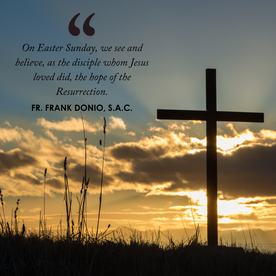 The time of the Paschal Triduum and the Easter season are almost upon us. How has the time of Lent been? It is meant to be one of ongoing conversion to Christ – metanoia. The Triduum offers us a deeper time of conversion. The Gospel readings of those days give us much to reflect on our own discipleship of Christ. On Holy Thursday, during the Mass of the Lord’s Supper, we experience table fellowship, the first Eucharist, and the witness of Christ in service to his Apostles through the washing of the feet. It is an example that we are called to follow. During the Commemoration of the Passion of Our Lord Jesus Christ, we hear of the betrayal of Judas, the denial by Peter, the suffering of Jesus, and the grief of those at the foot of the Cross, especially the Blessed Virgin Mary. In what occurs, we consider the ways in which we have not lived for Christ and how we can unite our suffering to his on the Cross. At the Easter Vigil, in the announcement of the angel to Mary Magdalene and the women at the tomb, we learn about the possibility of eternal life given to us all through the Risen Christ. On Easter Sunday, we see and believe, as the disciple whom Jesus loved did, the hope of the Resurrection. In this hope, we proclaim the Risen Christ as Savior of the world! Metanoia, ongoing conversion, is a patient journey that leads to our true joy, deeper encounter with the Risen Christ! May the charity of Christ urge us on! May you have a blessed Paschal Triduum and a joyous Easter! In God, the Infinite Love, Fr. Frank In college I was lucky enough to spend a semester in Cork, Ireland. In my Irish folklore class, my professor, a charming little Irish woman, introduced us to ‘tír na nÓg.’ Fundamental to Irish folklore, she described tír na nÓg as a liminal space, the betwixt and between. It is the thin veil that separates the supernatural world of the fairies from our natural, human one. In these places, there was much less of a divide between the supernatural and natural worlds. While Ireland is well known for its Celtic spirituality and folklore, it also has a strong Catholic tradition. As Catholicism took root in the country, the ancient traditions and rituals were maintained and incorporated into the Christian spirituality. In her book, Braving the Thin Places, Irish Catholic author Julianne Stanz draws out this connection. Just as tír na nÓg is the place where the mystical is believed to be closer at hand, we also have these “threshold places” in our own spiritual lives. Instead of thinking about the supernatural in terms of fairies, we can consider the way that God descends into our world and the places where we have a deeper sense of His mystical presence and action. Our personal thin places are those where “God is felt and near” (Stanz, 2021, p. xvii). But as most people who have desired to develop a deeper relationship with God will know, it can take time to become attuned to this nearness and let Him break through. For some, this breaking through can be spurred by beauty. In seeing a striking rainbow over the Irish countryside or beholding a newborn child, we can have an overwhelming sense of God’s power and work in our midst. In other cases, this breaking through may be the result of a personal difficulty or interior struggle. As Christ himself revealed, “For human beings this is impossible, but for God all things are possible” (Matthew 19:26). It is when our own powers fail, whether in comprehending the immensity of God’s goodness or in overcoming the difficulties we encounter, that we approach the threshold where God, with His strength and love, awaits us. Throughout the Old Testament, God revealed his nearness to his people: “What other nation is so great as to have their gods near them the way the Lord our God is near us whenever we pray to him?” (Deuteronomy 4:7) God approached the threshold of our lives and invited us to draw near to Him in return. In the Incarnation of Jesus, this nearness is made even more real to us. If tír na nÓg is the veil that separates the supernatural from the natural, Jesus fully pulls back this curtain. By descending into our world, He made space for the divine within the human. We call this grace; divine life within us. Grace works in our threshold places and enables us to discern God’s work and act upon His promptings. In concluding her book, Stanz speaks of the mysticism we must have, “an abandonment to the adventure of living with ‘holy worldliness’ as we try to experience in the thin places the wild things of God” (p. 169). Far from recklessness, this abandonment is a surrender to God and a trust in the ways He is working in our lives. It is “the free response of the human person to the initiative of God who reveals himself” (Catechism of the Catholic Church § 166). If we know God is near and for us, how can we not cross this threshold and rely on Him? The beloved Irish saint, St. Patrick, in his famous lorica or breastplate prayer models this reliance on God and belief in God’s nearness and power to cross the threshold of his humanity: I arise today Through God's strength to pilot me; God's might to uphold me, God's wisdom to guide me, God's eye to look before me, God's ear to hear me, God's word to speak for me, God's hand to guard me, God's way to lie before me, God's shield to protect me, God's hosts to save me. May we all have the grace to enter into our threshold places and be open to the powerful work of God in each of our lives! Stanz, J. (2021). Braving the Thin Places. Loyola Press. **Photo from Erin Donn.** |
Details
Archives
July 2024
Categories
All
|
About |
Media |
© COPYRIGHT 2024 | ALL RIGHTS RESERVED



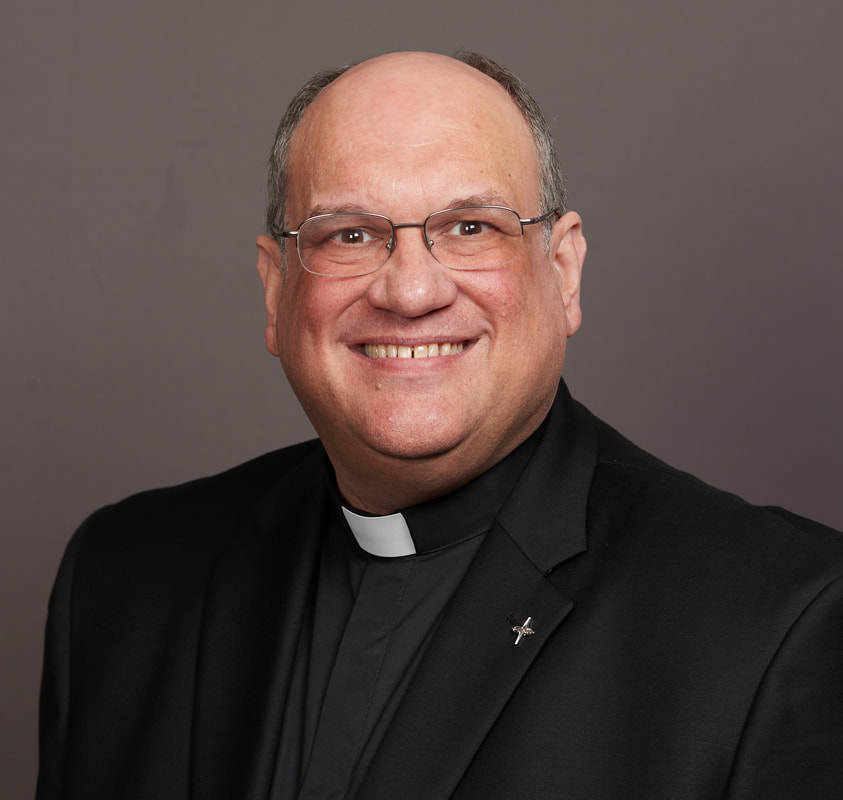
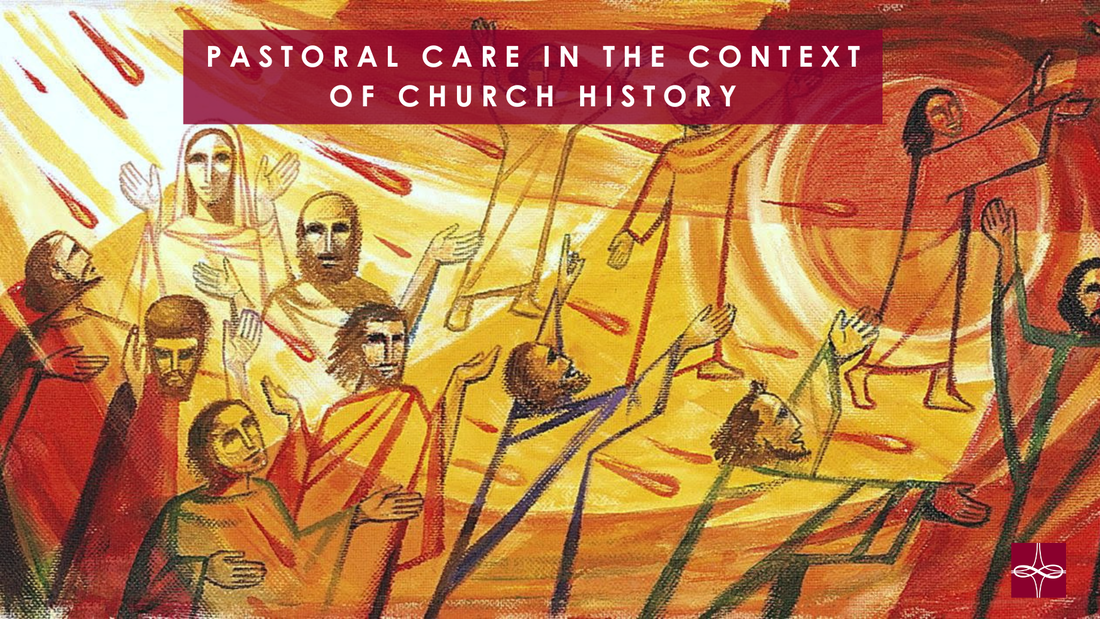

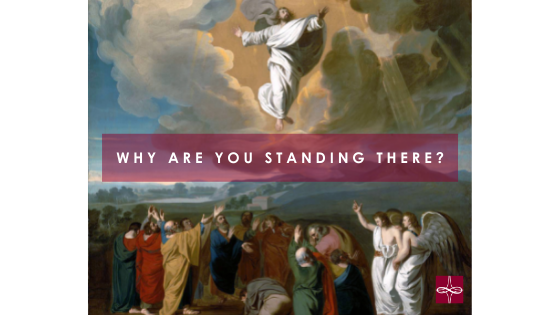

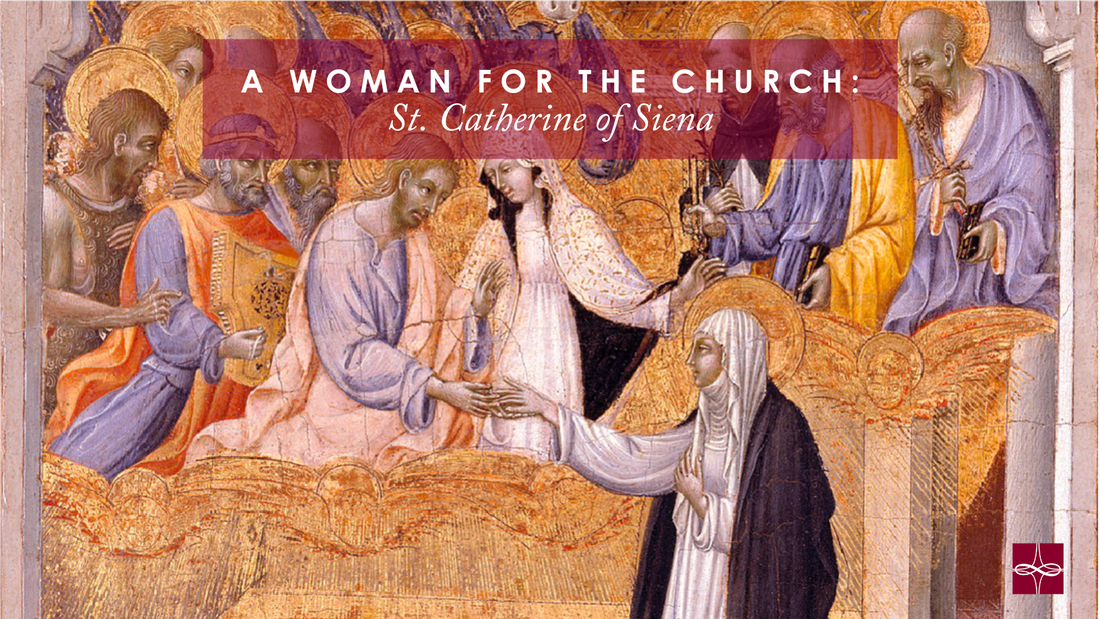


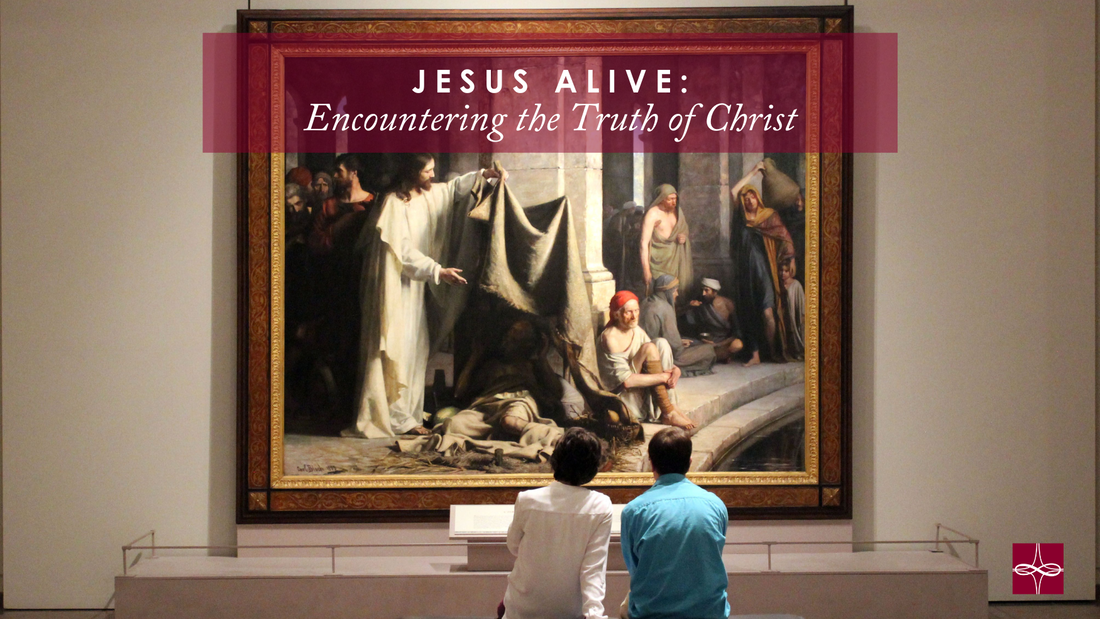
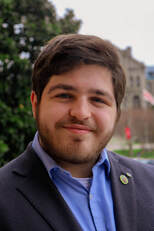


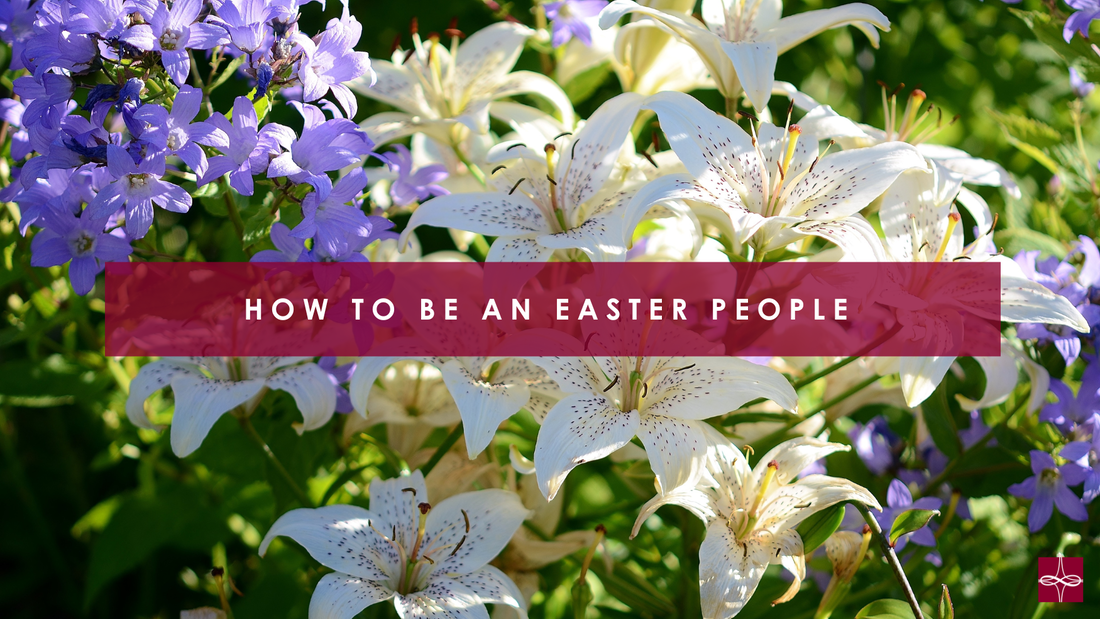

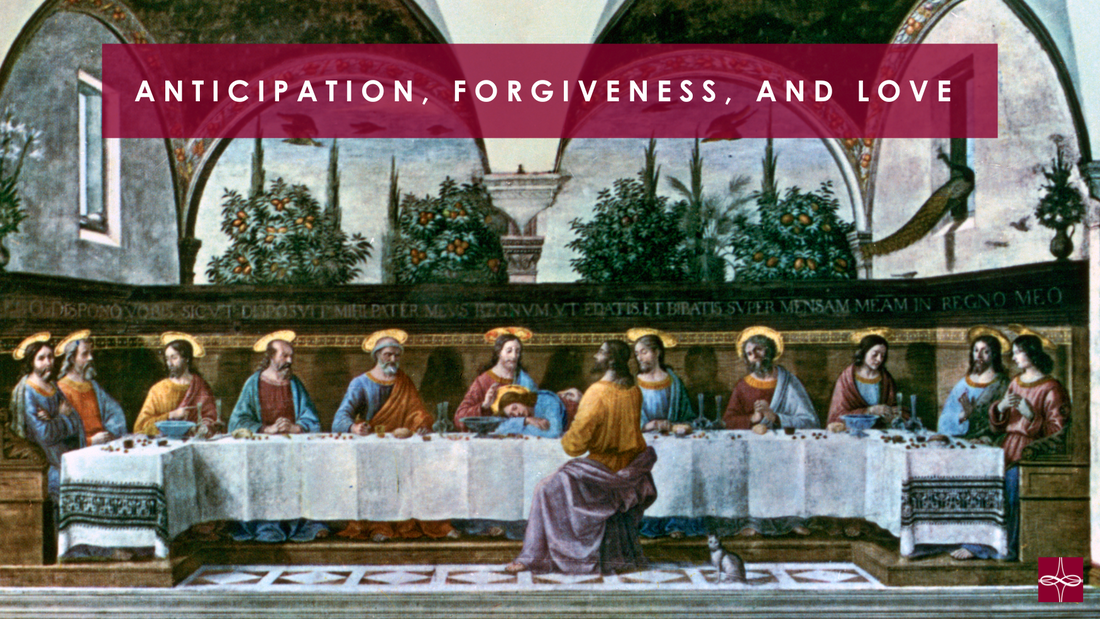
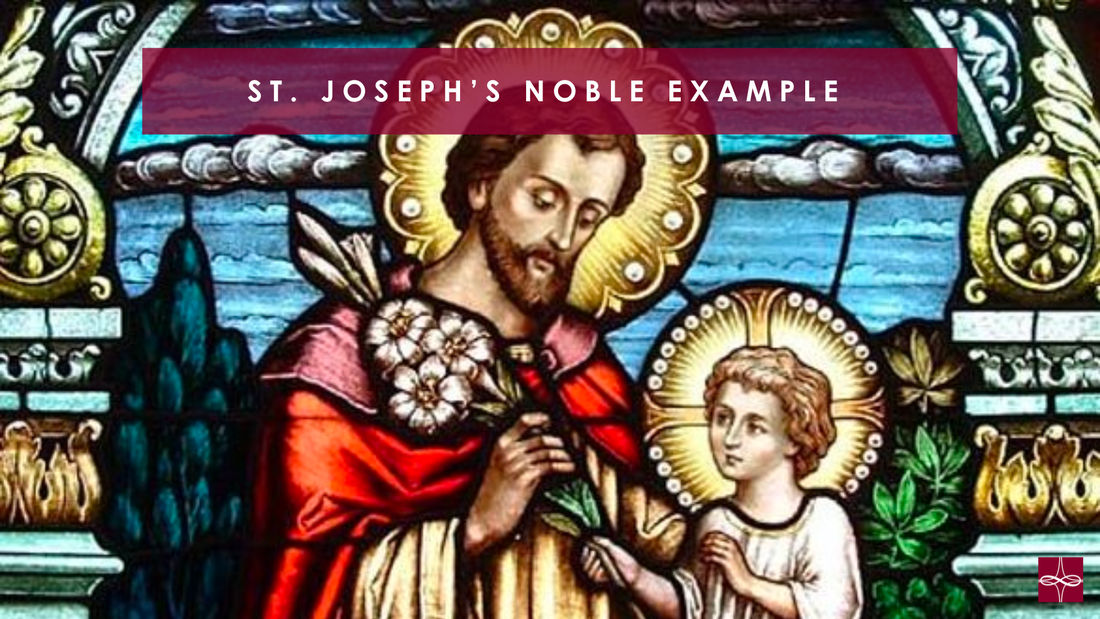
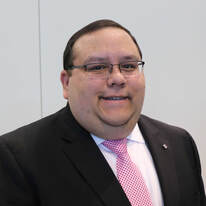
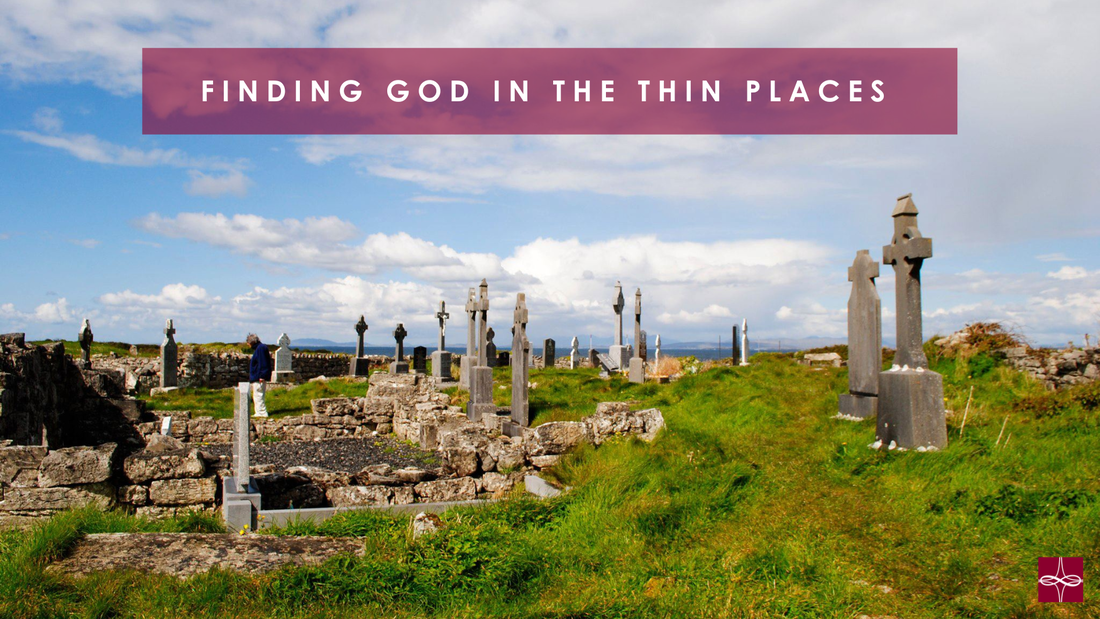
 RSS Feed
RSS Feed